Hong Van
Along with the city’s socio -economic development, in recent years, the system of vocational education institutions (VET) has continuously improved the quality of training towards strengthening international cooperation. This activity contributes to improving the quality of human resources, opening up job opportunities for students.
Improve skills
Practice hours of students at Can Tho Vocational College. Photo: Provided by the unit
Can Tho City currently has 69 vocational training institutions; including 14 colleges, 8 intermediate schools, 19 vocational training centers and 28 other institutions with an enrollment scale of more than 47,900 students per year. Of these, Can Tho Vocational College has been invested in by the Government to upgrade to become one of the 45 key vocational training schools in the country, with priority investment in resources, facilities, equipment, and teaching staff with many domestic and international joint training programs.
According to Ms. Cao Thi Hong Tho, Vice Principal of Can Tho Vocational College, recently, the College has been transferred by the British Council project on building a vocational education quality assurance system; training according to the order of ARS Company at the college level of metal cutting (students study 2 years in Vietnam and 1 year at KunJang University - Korea, upon graduation will be awarded 2 degrees). In November 2019, the College implemented a pilot training of international-level automotive technology under the transfer program from Avestos - Federal Republic of Germany. In addition, the College also cooperated with Hai Phong JSC to implement the "Japanese Technical Internship" program for graduates. Up to now, the College has had 25 students go to Japan with an average salary of 30-33 million VND/month. In order to improve the quality of teaching and learning, Can Tho Vocational College has applied the framework standards and quality assurance tools according to the British Council project in all 9 faculties and departments with the participation of many lecturers. Every year, the school has sent many lecturers to attend professional training courses in and outside the country (Malaysia, Korea, Australia, UK and the Federal Republic of Germany), 100% of lecturers meet the professional standards of key occupations.
Ms. Cao Thi Hong Tho, Vice Principal of Can Tho Vocational College, said: “The school has 2 occupations that meet the standards for quality accreditation of training programs, including: automotive technology and industrial electricity. Being recognized as meeting the standards for quality accreditation of training programs is not only the pride of the school, but also a source of motivation for the school to continue to improve and enhance the quality of training, worthy of being a source of high-quality human resources for the labor market in the Mekong Delta region as well as in Vietnam”. Currently, the rate of students of the school having jobs after graduation is on average over 86%. The survey results of the level of satisfaction of businesses with students reached 85.7%. The goal by 2030, the school strives to become a key high-quality vocational school, with a training scale of about 5,000 students with 14 college-level occupations and 11 intermediate-level occupations; In which, there are 9 industries and professions approaching the level of ASEAN-4 countries and advanced countries in the world towards standardization, modernization, socialization and international integration.
Expanding cooperation
In recent times, the vocational training system in Can Tho City has made a strong breakthrough in raising training standards and strengthening international links. This activity has been implemented quite well in some schools, such as Can Tho College of Economics and Technology, Can Tho Medical College, Can Tho College... According to Master Nguyen Thanh Long, Principal of Can Tho College of Economics and Technology, the School is currently applying the KOSEN-5S training model, applying 4.0 technology. This is a model for training learners' capacity that is close to reality, high quality and effective today. At the same time, the School is also cooperating with more than 70 corporations, companies, and prestigious universities at home and abroad in coordinating recruitment, job placement, practice, internship, joint training, and collaborative research... In 2022, the rate of students with jobs after graduation will reach over 95.2% and there are many professions where the rate of students with jobs after graduation will reach nearly 100%, such as animal husbandry, aquaculture, plant protection, veterinary services, accounting...
Meanwhile, at Can Tho Medical College, since 2017, the College has cooperated with International Cooperation Services Joint Stock Company (CICS) and Nara Higashi Hospital Group to organize free Japanese language training for students who are in need and intend to do internships in Japan. Currently, Can Tho Medical College is establishing cooperative relationships with universities and international organizations, such as the Faculty of Health Sciences - Semmelweis University, Queensland University of Technology, Tokyo Center for Occupational Safety and Health, Japan Institute of Labor Science... In 2022, Can Tho Medical College will continue to extend the signing of a memorandum of understanding on work cooperation with Kenwa-kai Medical Foundation Hospital Group, Medicare Network Association and International Cooperation Services Joint Stock Company (CICS); sign a cooperation agreement with FPT Long Chau pharmacy system to create more internship and job opportunities for pharmacy students after graduation. Thanks to this proactive cooperation, in recent years, the rate of students having jobs after 1 year of graduation has reached over 80%.
In general, international cooperation in vocational training has been and is being implemented by vocational training institutions in Can Tho City and has achieved many remarkable results. However, it is necessary to recognize that the international labor market has increasingly strict standards on qualifications, skills and discipline of workers. In order for workers to have a better position and better income, the city's vocational training institutions need to continue to improve the quality of vocational training; proactively promote international cooperation in scientific research activities, invest in equipment, facilities, advanced and modern practice workshops, suitable for the new curriculum... to meet the needs of training high-quality human resources for the city.
Source link


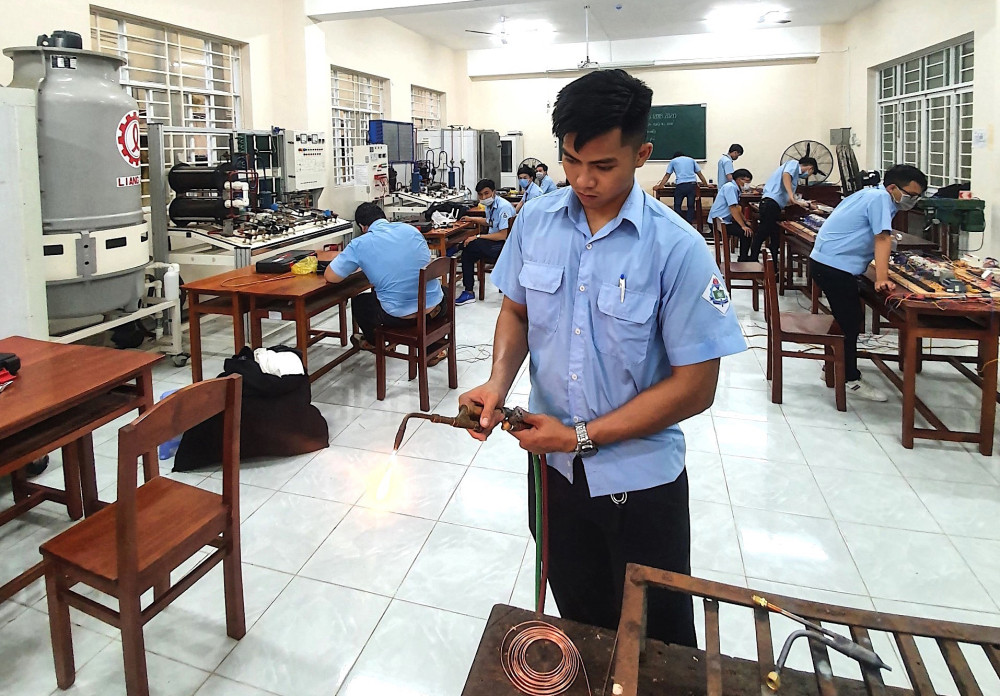






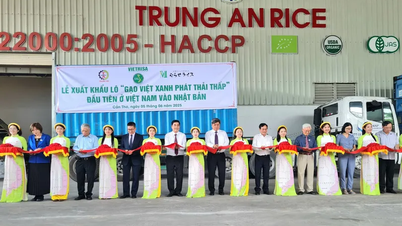

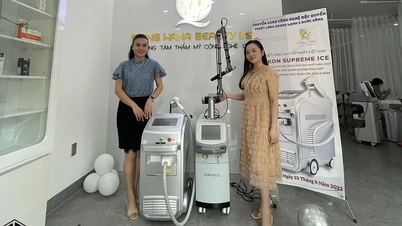


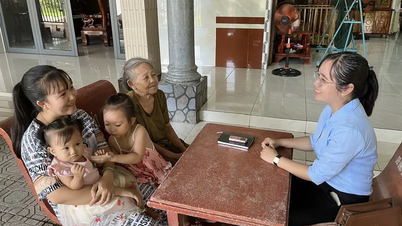





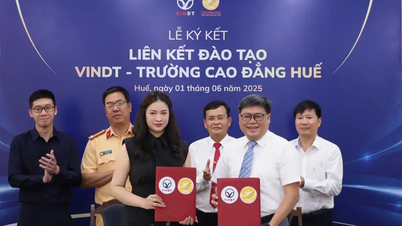


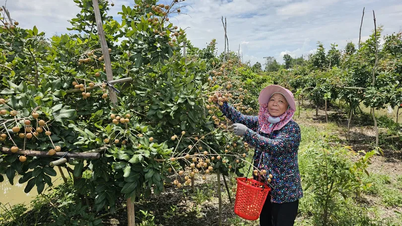
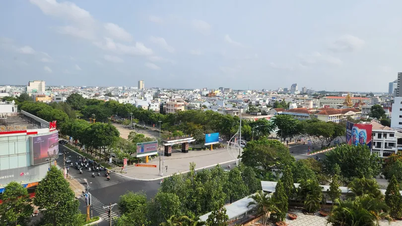












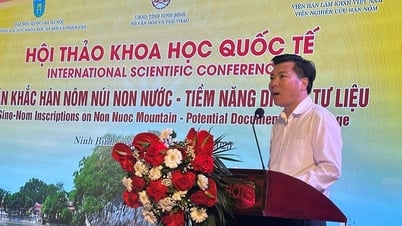




































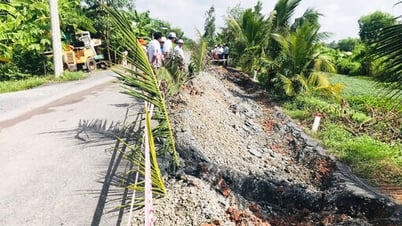









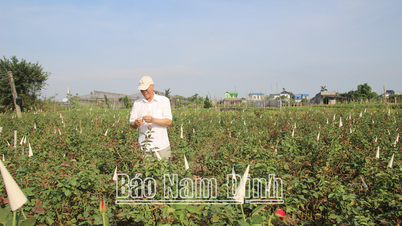









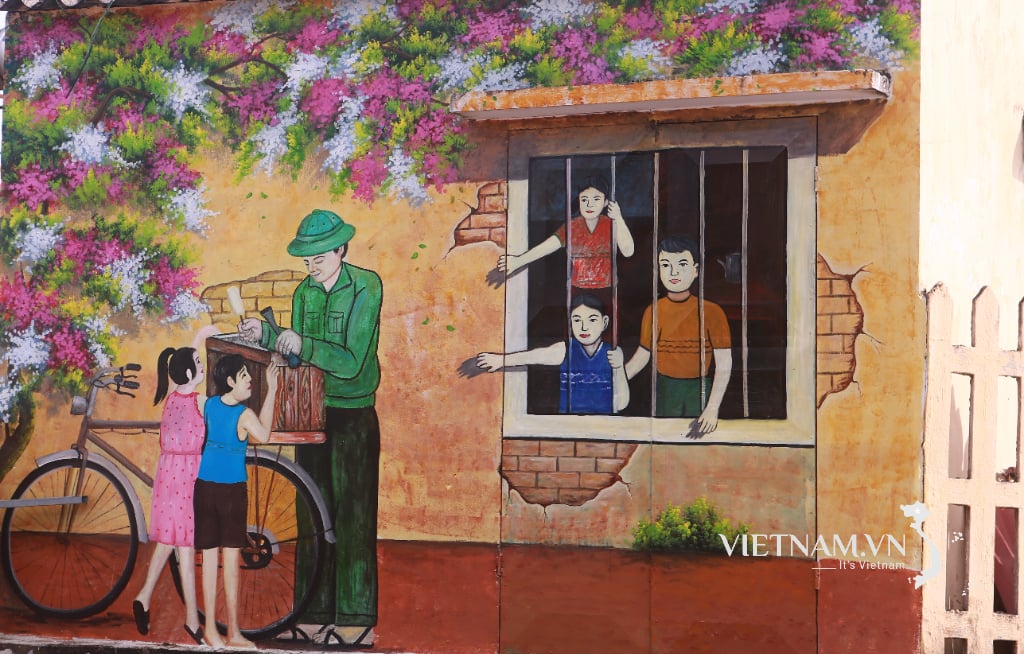


Comment (0)